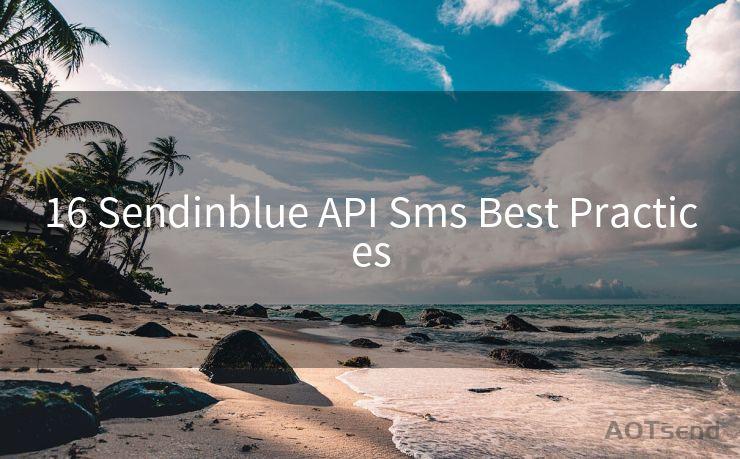16 Sendinblue API Sms Best Practices




When it comes to integrating SMS functionality into your business operations, the Sendinblue API offers a powerful and flexible solution. However, to ensure maximum efficiency and effectiveness, it's essential to follow best practices. Here are 16 key tips for making the most of the Sendinblue API for SMS.
1. Understand the API Basics
Before diving into the specifics of SMS marketing, familiarize yourself with the Sendinblue API's fundamentals. This includes understanding endpoints, request formats, and response codes.
2. Secure Your API Keys
Protect your API keys like the crown jewels. Never share them publicly or store them insecurely. Use environment variables or secure storage solutions to keep them safe.
3. Validate and Clean Data
Ensure that all phone numbers are valid and formatted correctly before sending SMS. Invalid numbers can lead to failed deliveries and unnecessary costs.
4. Comply with Regulations
Be aware of and comply with all relevant data protection and privacy regulations, such as GDPR or TCPA, when sending SMS messages.
5. Personalize Your Messages
Use personalization fields in your SMS to increase engagement. Addressing recipients by their name and sending relevant content can significantly boost response rates.
6. Optimize Message Length
Keep your SMS messages concise and to the point. Long messages may get truncated, affecting readability and response rates.
7. Test, Test, and Test Again
Always test your SMS campaigns before sending them live. This helps identify any issues and ensures that your messages display correctly on different devices.
8. Use Clear and Actionable Language
Make sure your SMS copy is clear, direct, and actionable. Avoid jargon or complex language that might confuse recipients.
9. Schedule Your Sends
Take advantage of the Sendinblue API's scheduling feature to send SMS at optimal times for your target audience.
10. Monitor Delivery and Response Rates
Regularly check your SMS delivery and response rates. This data is crucial for fine-tuning your campaigns and identifying potential issues.

11. Handle Opt-Outs Gracefully
Respect users' wishes if they choose to opt out of receiving SMS. Implement a clear and easy-to-use opt-out mechanism.
12. Leverage Automation
Utilize Sendinblue's automation features to send triggered SMS based on user behavior or specific events.
13. Segment Your Audience
Segment your audience based on demographics, interests, or purchase history to ensure more targeted and relevant SMS campaigns.
14. A/B Test Your Messages
Experiment with different message variations to see which ones perform best with your audience.
15. Integrate with Other Channels
🔔🔔🔔
【AOTsend Email API】:AOTsend is a Managed Email Service for sending transactional emails. Support Email Types: reminders, authentication, confirmations, notifications, verification codes, invoices, password resets, account activations, billing statements, two-factor authentication (2FA), and one-time passwords (OTP) emails, etc. $0.28 per 1000 Emails. 99% Delivery, 98% Inbox Rate.
You might be interested in:
Why did we start the AOTsend project, Brand Story?
What is a Managed Email API, How it Works?
Best 25+ Email Marketing Platforms (Authority,Keywords&Traffic Comparison)
Best 24+ Email Marketing Service (Price, Pros&Cons Comparison)
Email APIs vs SMTP: How they Works, Any Difference?
Combine SMS with other marketing channels like email or push notifications for a more comprehensive and effective communication strategy.
16. Stay Up to Date
Keep abreast of any updates or changes to the Sendinblue API to ensure your SMS campaigns remain effective and compliant.
By following these best practices, you can maximize the effectiveness of your SMS campaigns using the Sendinblue API, driving better engagement, conversions, and ultimately, business growth.




Scan the QR code to access on your mobile device.
Copyright notice: This article is published by AotSend. Reproduction requires attribution.
Article Link:https://www.mailwot.com/p2710.html



